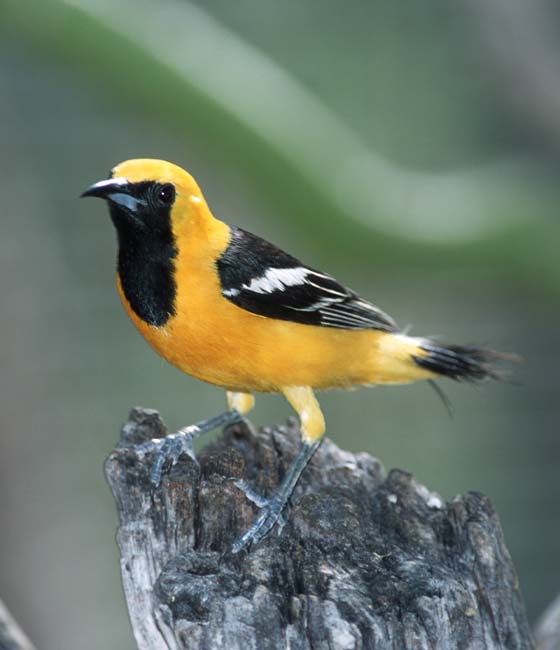|
| 질의: black back | 결과: 69번째/1144 | |
Is this an Oriole or..? -- Hooded Oriole, Icterus cucullatus
| 제목: | Is this an Oriole or..? -- Hooded Oriole, Icterus cucullatus
| | 올린이: | Shirley Curtis (sowhat@azstarnetSPAMSCREEN.com)
| |

| 파일크기 : 36792 bytes
File date : 2000:09:26 17:53:18
해상도: 560x650
Jpeg process : Baseline
Posted Newsgroups: alt.binaries.pictures.animals
Posted 촬영일: Thu, 27 Jul 2000 18:33:39 -0700 |
Taken at the Desert Museum aviary a couple of days ago. Tucson, AZ. I
tried to match the bird with examples in my bird book, but couldn't as the
orioles had the black patch in a different spot.
SC
yellowbird.jpg
Comments
========
From: "John J. Collins"
Subject: Re: Is this an Oriole or..?
Date: Thu, 27 Jul 2000 23:02:40 -0400
It's a Hooded Oriole.
--
John J. Collins
Whitestone, NY
"In the end we will conserve only what we love; we will love only what we
understand; we will understand only what we are taught." (Senegalese
proverb.)
Comments
========
From: "CATherine"
Subject: Re: Is this an Oriole or..?
Date: Thu, 27 Jul 2000 21:47:01 -0600
It is a Hooded Oriole from southern California, Arizona and Mexico.
Beautiful shot.
--
CATherine
my web site:
http://users.codenet.net/sadler/pepsicola5cents/
|
댓글 |
|---|
| | 손님 |
|
The Hooded Oriole, Icterus cucullatus, is a medium-sized New World oriole.
Adults have a pointed bill and white wing bars. The adult male has an orange head with black on the face and throat; they are black on the back, wings and tail, orange on the underparts. The adult female is olive-green on the upper parts, yellowish on the breast and belly.
Their breeding habitat is open areas with trees, especially palms, across the southwestern United States and northern Mexico. The nest is a tightly woven pouch attached to the underside of a leaf or tree branch.
These birds migrate in flocks south to Mexico's southwestern coast; they are permanent residents in Baja California Sur, the Mexican east coast, and Belize. Some may over-winter near feeders.
They forage in trees and shrubs, also feeding from flowers. Because it pierces the base of the flower, it does not assist in pollination. These birds mainly eat insects, nectar and fruit, and will also visit hummingbird feeders. |
^o^
동물그림창고 똑똑전화 누리집
^o^
|
|
|

